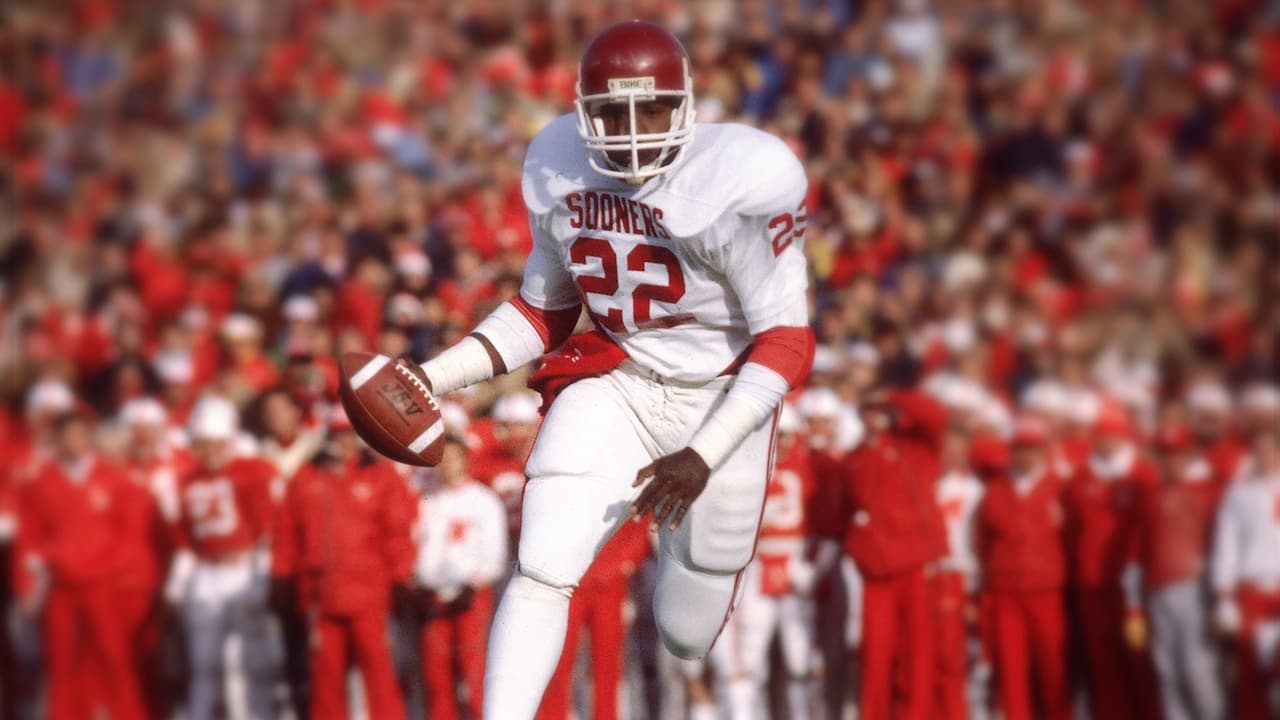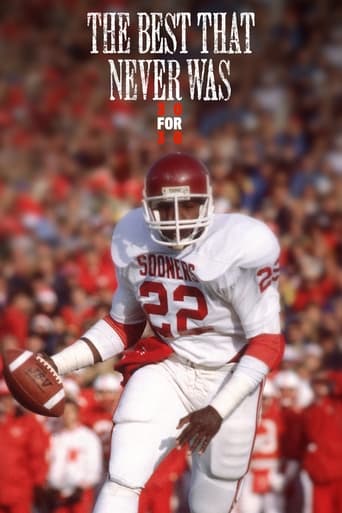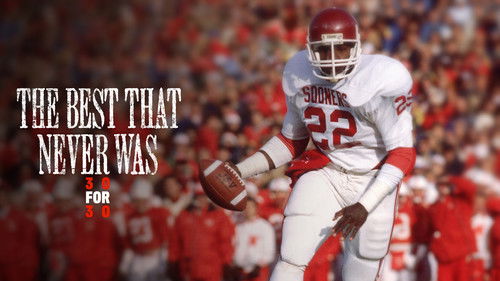


I think this may the one of the best if not THE best sports documentary ever. I know that is a heady statement to make, but I found myself moved to tears at the end of the story. This is an amazing story of one of the most gifted high school football players to ever walk on a football field. Looking at the clips showing Marcus as a college player reminded me of similarities to one of the greatest ever to play the game, Walter Payton. And Payton's rigorous off-season training regimens were legendary. Marcus DuPree already had most of that without the need for the extra training. Yes, the story is tragic, but there is redemption for Marcus when he does eventually make the roster of an NFL franchise, only to be let go for some unexplained reason.For every Emitt Smith, Walter Payton, Barry Sanders, there are a dozen Marcus DuPree's. Not in terms of athletic ability, but in the failure of the college football system and false hopes young talented athletes put into of achieving a long term professional football career. Mort often than not, especially in football, injury drastically reduces the chance of a player developing or continuing a career for any meaningful length of time and many end up just like Marcus, at some menial job even though they attended college on an athletic scholarship and could have graduated with a college degree if they chose to finish or go back to school after they turn pro. But yet there is an insatiable appetite for professional sports and as long as spectators and the common fan continue to worship and put pro (and college, and even high school) sports on the pedestal that we do, people like Marcus will continue to be exploited and make unwise choices.This documentary highlighted this and much more. Shakespeare himself could not have penned such an artful tragedy.
... View MoreThis episode of "30 for 30" is about the life and career of Marcus Dupree--a phenom in high school and one of the top college prospects of the early 1980s. The show tries to explore why it is that such a hot running back would have a pro career that was, at best, mediocre and short--shortened by injuries and filled with 'what ifs'.The show began with a discussion of Dupree's hometown of Philadelphia, Mississippi. The town's history of black church burnings and civil rights deaths was briefly discussed. Then the film talked about Marcus' early football career and his soon becoming one of the top prospects for colleges. At this point, a frenzy broke out--with dozens and dozens of schools begging, pleading and offering a wide variety of 'incentives' to play for them. When these bribes were offered, Dupree's family got in on the act and a huge feeding frenzy broke out--with him going to the highest bidder for college. In this case, the University of Oklahoma obtained his services and his college career was very productive as a freshman--but there was a lot of trouble brewing under the surface--problems with the coaching staff, problems with self-discipline and problems with injuries.Eventually, Dupree cut his college career short and became pro--going to the new USFL (and soon to be defunct USFL). Unfortunately, instead of becoming a big star like Kelvin Bryant or Hershell Walker, Dupree's USFL career consisted of a series of injuries and lowered expectations. He soon retired as a result. Several years after retiring, Dupree made a comeback in the NFL--but it, too, was cut short due to injuries (and one of them they showed in the clips was HORRENDOUS--almost as bad as the famous Joe Theismann injury).All in all, this is a sad but compelling story of wasted talent, bad advice, irresponsibility and how fragile the human body is--as MANY 'top picks' never even make it to the pros due to injuries. In other words, although Dupree was an obvious example of not achieving expectations, this occurs all the time in pro sports. For every overachiever, there are many who get hurt or make stupid choices who end up sweeping streets or going to prison instead. By the way, I watched this right after watching the "30 for 30" about Len Bias--another example of what might have been in pro sports.Wouldn't this be a GREAT documentary to show hot high school sports stars?! Show them what COULD easily happen if they aren't very, very careful...and lucky.And, if you do see it, watch the scene where Barry Switzer talks about the way he treated Dupree when he was a student at OU. He comes VERY close to saying he made a mistake but didn't seem to be able to say this. Interesting.
... View More30 for 30: The Best That Never Was (2010)*** 1/2 (out of 4) A rather depressing look at Marcus Dupree, a teenager who was growing up in the small town of Philadelphia, Mississippi who quickly became one of the highest recruited football players in history. After a swarm of recruiters, Dupree finally went to Oklahoma where he had an amazing Freshman year but things took a turn the following year and soon this once untouchable figure had a future that no one was certain about. I'm sure we've all seen countless films or documentaries that discussed great talent that would eventually find the top only to fall and then have to rebuild and make their way to the top again. This film is pretty much different because Dupree was looked at as one of the greatest high school players ever and then his career would pretty much be over in a few years and no one ever really got to see how great he could have been. The fact that Dupree never made it to the top is the main focus of this film and I don't see how anyone could watch this and not feel horrible for the man. There's a bit of redemption where Dupree was finally able to fulfill a dream and that I won't ruin for those unfamiliar with his story. I think director Jon Hock did a very good job at telling us the story and telling it from as many different point of views as possible. We hear from Dupree but we also hear from those who recruited him, friends of his and even from the man who probably stole a lot of money from him. I think the film did a very good job at explaining everything that was going on in this kids life and how he was pretty much thrown away before the age of 24. I'm sure many people will probably remember Dupree but I was way too young to know anything about him and I was certainly too young to see him play. While watching the film it really played out as a mystery how someone with his talent wouldn't eventually find the top of the mountain but I thought Dupree came off very respectable here and you can't help but wonder what he thought about what could have been.
... View More